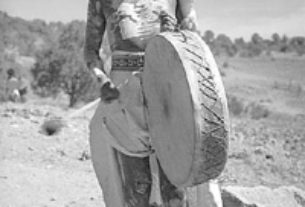1. What are the basic documents I need to ship my goods to Mexico?
NAFTA FACTS document 8401 provides detail on the documents needed to ship goods to Mexico.
2. I have been told that I cannot export my goods to Mexico because they are not correctly labelled. Where can I find information on Mexican labelling?
Mexico is placing increasing importance on compliance with its labelling laws. Your labelling requirements depend on the type of product you are shipping to Mexico. A summary of Mexican labelling requirements is in NAFTA FACTS document 1602.
3. I have been told that my product is subject to a NOM. What is that?
A “NOM” is a mandatory Mexican standard, generally imposed for health and safety reasons. A product which is subject to a NOM cannot be imported into Mexico unless it has been certified as being in compliance with the NOM. Please see NAFTA FACTs document 1102 for additional information.
4. In addition to NOMs, are there any other restrictions on the importation of products into Mexico?
Mexico regulates products in a number of areas for health and safety reasons. Products subject to regulations could include hazardous materials, pharmaceutical, some food items, and medical equipment. Exporters should work closely with their importers and Mexican customs brokers to determine if their products are subject to such restrictions. Please see NAFTA FACTS documents 8406 for information on pharmaceuticals.
5. I have been told that I need a certificate of origin for my product. What do I need to do to comply?
There are two types of certificates of origin that Mexico may need: 1) the NAFTA certificate of origin; or 2) a certificate of origin to determine country of origin for non-NAFTA goods.
Information regarding the NAFTA certificate of origin can be found on NAFTA FACTS document 5003. Information on the non-NAFTA certificate of origin may be found on document 8410.
6. What is the treatment of used equipment and goods under the NAFTA
Restrictions: There are still some restrictions on the importation of some used equipment and goods under the NAFTA. NAFTA FACTS document 8400 goes into detail regarding these restrictions.
Customs Value: Mexican Customs assesses customs duties on the transaction value (the unrelated sales price and the cost of getting the material to the border) of merchandise, whether new or used. U.S. companies selling used equipment to Mexico may be asked to substantiate the sales price of the used equipment.
NAFTA Preferential Treatment: If a U.S. exporter desires NAFTA preferential tariff treatment for his/her goods, that exporter must be able to substantiate that the product meets the NAFTA rules of origin. The rules are the same for new and used goods. Detail regarding the NAFTA rules of origin can be found in NAFTA FACTS document 5000.
As a practical matter, it can be very difficult to certify a used piece of equipment as “originating” under the terms of the NAFTA. An exporter would have to go back to the producer to obtain information regarding the inputs, etc. This is often a very difficult task since the equipment has usually gone through several hands.
For reconditioned equipment, or any situation where value was added by the most recent user, the company adding value would be the producer. However, they would still have to comply with the NAFTA rules of origin for that product.
7. My company has to repair equipment which it sold to a company in Mexico. What do we need to do?
Replacement Part shipped to Mexico: What the company chooses to do will depend on how the part is sent to Mexico.
Mexican customs law requires that all commercial importations be executed by a Mexican Customs broker. This requirement can be waived when the importation is under $2000. Please see NAFTA FACTS document 8409 for more information on this procedure. From a practical stance, many companies find that this is the fastest and easiest way to get a low-value replacement part to Mexico.
For higher value replacement parts, the company needs to arrange for the services of a Customs broker prior to shipping the good or, if the repairperson intends to hand-carry the product, prior to the repairperson leaving on his/her trip to Mexico. Documents required by Mexican customs are the same as those required for any importation.
There is a provision in the Mexican Customs law that allows for the replacement of defective parts or machinery without incurring customs duty on the replacement parts or machinery. However, in order to use this provision, the defective part or machinery must leave Mexico prior to the replacement being entered into Mexico. A Mexican customs broker must handle the paperwork for the export from Mexico of the defective part or machinery, and the subsequent importation of its replacement.
All applicable duties and charges apply unless the defective part is “temporarily” exported from Mexico before the replacement part is shipped. Contact a Mexican Customs broker for additional information.
Product shipped back to the U.S. for repair: Product must be formally “temporarily exported” from Mexico using a Mexican Customs broker. The broker essentially registers the product, so that when the product is brought back to Mexico, it can be brought back duty-free.
8. How do I find a Mexican Customs broker?
Typically, it is the Mexican importer who hires the import broker. However, if you need to hire a Mexican import broker, the best way is to obtain a recommendation from business associates, clients or customers. If you are unable to find a broker through a recommendation, you may contact the Confederacion de Asociaciones de Agentes Aduanales de la Republica Mexicana (Confederation of Mexican Customs Brokers) at 011-525-533-0075, 011-525-533-0076, 011-525-533-0077, 011-525-533-0683 or 011-525-533-0684; Fax: 011-525-525-8070.
9. I have a commercial sample I need to ship to Mexico. What do I need to do?
Commercial Samples of Negligible Value: Commercial samples of negligible value can be permanently imported into Mexico duty-free. However, such goods must be truly valueless — meaning cut, marked, torn, or otherwise made unsalable. All other commercial samples must be imported into Mexico on a temporary basis. Contact a Mexican Customs broker for additional information.
Commercial Samples: All commercial importations into Mexico, whether temporary or permanent, must be executed by a Mexican customs broker.
Organizers of many trade shows in Mexico often make arrangements to bring merchandise into Mexico via a single freight forwarder. We strongly recommend that U.S. companies going to trade shows in Mexico use the channels set up by the trade show organizers to get their merchandise into Mexico.
If this is not an option, a company needs to make its own arrangements with a customs broker, or, if the shipment is under $2000, may choose to send the samples to Mexico via a courier/package delivery service using informal customs procedures. Please see NAFTA FACTS document 8409 for more information on this procedure.
Many U.S. companies ask if they can hand-carry the goods. This is a possibility. However, since the importations are commercial, they must use a Mexican customs broker. Arrangements should be made before they leave the United States. Companies should note that if they have samples, and they do not declare them to Mexican Customs, then the goods will be considered to have fraudulently entered Mexico and could be seized by Mexican Customs.
10. What are the procedures for sending charitable goods to Mexico?
Mexican law requires that all importations, with the exception of low-value shipments and personal use items, be executed via a Mexican customs broker. The NAFTA does not change this requirement.
Mexico does have special customs provisions for the importation of donated goods. These provisions do require, however, that the organization receiving the donated goods in Mexico is authorized to receive such donations by the Mexican Ministry of Finance. In order to facilitate importation of your goods into Mexico, you need to work in Mexico with such an authorized organization and a reputable Mexican customs broker.
Just because the goods are donated, however, does not mean that they are exempt from Mexican regulations. For example, the requirement that an import permit be granted for used clothing still holds.
11. What is the procedure for sending gifts to Mexico?
When shipping goods to Mexico, the requiremnt to use a customs broker can only be waived in some situations when low value items are shipped via a courier/package delivery service. Please see NAFTA FACTS document 8409 for more information on this procedure.
12. What are Mexico’s duty obligations concerning goods carried into Mexico by non-Mexican residents?
Persons residing outside of Mexico (regardless of whether they are Mexican citizens) may bring into the country an array of personal duty-free items. Lists of the specific personal items exempted from duties are available at Mexican Customs facilities. Beyond these items, there is a $300 limit for additional duty-free items. This limit applies whether or not they arrive by land, sea or air.
Import duties of up to 20% are levied on the goods. In addition, a customs user fee (0.08) and a value-added tax (10) are levied on the imported goods.
Persons bringing a dutiable good (or goods) into Mexico have the option of classifying them under the product-specific tariff (this would involve the hiring of a customs broker) or declaring the goods under a simplified procedure and paying a total duty charge of 32.8%
These provisions can only be used for personal goods. They are not applicable for goods brought into Mexico for commercial purposes.
SPONSOR:
This article is electronically reproduced with permission from the Mexico 2000 Business Directory (Click for more info.) . Your Passport to Mexican Business.



